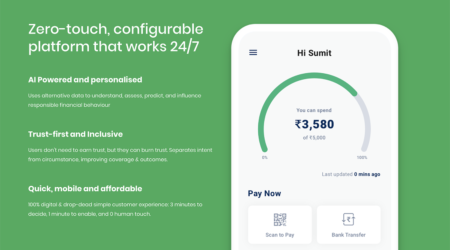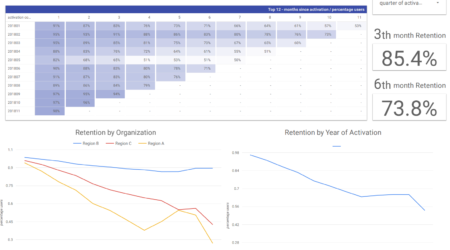Meet Kwara, the digital platform powering Kenya’s cooperative savings and credit sector

Kwara is bringing digital transformation to Kenya’s cooperative savings and credit sector
Catalyst Fund accelerates startups that excel on three fronts:
- Impact: Catalyst Fund startups deliver (or, in the case of B2B firms, facilitate the delivery) of life-changing products and services to underserved populations. These can include financial services like loans, savings, insurance, and investment, but also access to productive inputs or essential services such as energy, sanitation, and water.
- Innovation: Our startups are pioneering game-changers that are innovating new products and business models. They drive the sector forward by demonstration effect and via the learning that Catalyst Fund documents and shares.
- Growth potential: Catalyst Fund startups are distinctively investment worthy, developing businesses that are scalable, with high growth potential. Our startups are selected by an Investor Advisory Committee, who have deep experience in emerging markets and nominate high-potential startups, and then sponsor and mentor them through Catalyst Fund. As a result, our startups raise more funding than startups from other accelerators.
Kwara aims to digitize SACCOs (Savings and Credit Cooperatives, also known as Credit Unions) and other Non-Bank Financial Institutions (NBFIs) to amplify people’s existing financial habits and increase usage of diverse financial services among the underserved, starting in Kenya. Their banking platform-as-a-service and credit scoring capabilities enable SACCOs to connect to the formal financial system, bring their operations online and reduce fraud, and provide SACCO members with access to banks and ATMs. As a result, these groups can offer safer, faster, and more diverse financial services to underserved populations via an institution they already know, trust, and use.
Kwara’s solution supercharges a tech-enabled savings culture, which can serve as the foundation for a strong financial ecosystem, from which people can obtain affordable loans and build their credit profiles and credit scores. It directly links the informal and formal financial sectors, enabling underserved customers to access the formal banking infrastructure such as ATM networks, credit bureaus, digital transactions, and more.
Impact
With over 15,000 registered societies and unions, co-operative financial institutions in Kenya play a critical role for financial inclusion among underserved communities. Kenya’s cooperatives are comprised of more than 10 million members, and they collectively control savings of KSh 501 billion (US$ 4.7 billion) and an asset base of KSh 694 billion (US$ 6.54 billion). In 2017, they contributed 5.72% of Kenya’s nominal GDP.
One key reason for their popularity among low-income, underbanked populations is that these institutions offer better returns on savings than mainstream banks, as well as loans at more affordable interest rates. They are able to intermediate member savings to offer more attractive products and also offer options for social collateral and personalized financial support. They play a vital role in improving the overall financial health of the members they serve.
They are, however, often excluded from the digital financial sector and rely on manual operations and processes, resulting in inefficient operations, challenges with liquidity, and lack of proper data analysis. Fraud is also prevalent among SACCOs because, due to their informal nature, they sometimes lack proper regulation and vetting, and effective means of fraud detection.
When these institutions are not able to meet members’ needs, members often turn to loan sharks and other sources of capital, which can mean higher interest rates and unscrupulous repayment methods.
Kwara’s platform aims to make SACCOs more transparent, secure and investible in terms of operations, while also enabling improved services for members in terms of more, better, and faster services, as well as access to digital products. Their ultimate goal is to improve the overall financial health of the members.
Innovation
Kwara offers an affordable digital platform that enables cooperative financial institutions to acquire and retain more members, secure their members’ funds, and increase their revenue. Members in turn receive a more convenient experience, increased transparency and more complete credit profiles.
In all, the service enables SACCOs to control and approve loans more effectively, while building and tracking individual credit scores and personal finance – which members can often access for the first time. This leads to better control over individual finances, and better access to fair loans.
SACCOs have an established working culture as well as operational processes and habits. In such an environment, any pain point or obstacle to usage that feels more difficult, less clear, or less intuitive to users may cause them to return to older existing practices, no matter how burdensome. After all, habits are hard to break.
As such, Kwara’s challenge is to create a solution that disrupts these practices, but in a way that feels easy, seamless, and valuable. Kwara has deeply understood the methods and ways of operating in SACCOs to carefully construct a solution and user experience that matches the mental maps and intuition that exists within the organizations. The team is continuously adjusting and refining the solution to ensure it meets users’ needs.
Growth Potential
As of 2017, 35% of Kenyans utilized informal financial services – and this number continues to grow. Connecting these entities to the formal financial sector can result in increased accessibility and greater affordability for all stakeholders.
The Kwara team plans to expand its offering beyond Kenya, into additional emerging markets like Indonesia – where many rely on informal rotating savings groups, such as arisans – and the Philippines, where microfinance, savings groups, and non-bank financial institutions have long played a critical role in bringing crucial financial services to the underserved. In Indonesia, as of 2016, 22% of adults had used an arisan, and 11% had used a microfinance institution (MFI), making these the preferred financial services provider for the unbanked or underserved.
Non-bank financial institutions in these and other emerging markets around the world face similar challenges related to lack of digitization and structure, prevalence of fraud, and lack of data access for members. However, there is a significant opportunity for Kwara’s platform to enable these groups to improve their services, amplify their customers’ behaviors, and further inclusion so as to increase overall financial health among their members.


